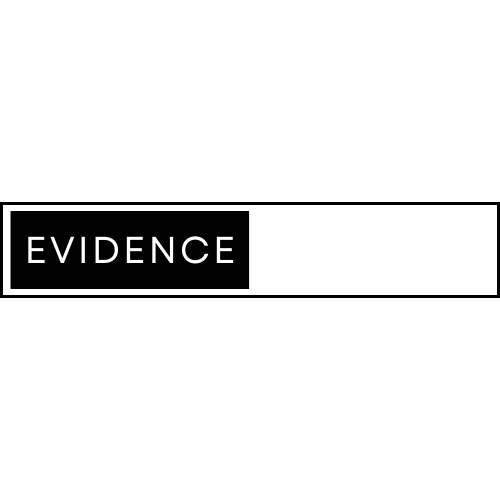Psychodrama as an Effective Method for Enhancing Relationships and Social Skills

By Scott Giacomucci, DSW, LCSW, BCD, CGP, FAAETS, TEP
The overwhelming majority of clients who seek therapy are struggling with issues related to relationships, social skills, or social anxiety. Most mental health disorders directly impact one’s ability to maintain healthy relationships. Relationships and social skills naturally become a core component of nearly every group therapy experience. Group therapy, sociometry, and psychodrama are inherently positioned as effective methods for helping clients to work through relational trauma, enhance their relationships, and sharpen social skills.
Group therapy is uniquely situated as a modality for enhancing relationships and social skills because it provides an opportunity for participants to interact and learn from each other in a supportive environment. Unlike individual therapy, group therapy offers a community of peers who can share their experiences and provide valuable feedback on behavior and social interactions. The group setting also provides a safe space for members to practice new communication styles and assertiveness techniques with the support of a trained therapist. By observing and interacting with others in the group, members can learn new social skills, gain insights into their own behaviors, and develop a greater understanding of different communication styles. Additionally, the shared experiences and challenges of the group can create a sense of community and connection that can help members feel less isolated and more understood. The majority of Yalom and Leszcz’s therapeutic factors in group therapy are directly related to relationships and the social experience of groups (2020). Overall, group therapy can provide a powerful context for enhancing relationships and social skills, offering opportunities for learning, practice, support, and connection.
Sociometry focuses on the study of social networks and the patterns of relationships that exist within them. This approach can help individuals to better understand their own social networks, social atoms, attachment styles, as well as the dynamics of group interactions more generally. By mapping out their social relationships, participants can identify patterns of interaction and gain insights into the factors that influence their relationships with others. This can include identifying individuals who provide support and those who may be sources of conflict or stress. Additionally, sociometry can provide a framework for developing and practicing skills related to social dynamics, allowing individuals to experiment with new approaches to social interactions and observe their impact on relationships. Sociometric tools such as the social atom and role atom provide clients with a direct way of assessing and evaluating their social life while developing a vision for change. Experiential sociometry tools such as spectrograms, step-in sociometry, floor checks, and sociograms can be employed with criteria related to relationships and social skills to help participants to connect with each other on shared difficulties and goals related to relationships (for a more in-depth description of action sociometry, see Giacomucci, 2021). Overall, sociometry can provide powerful tools for enhancing relationships and social skills, offering a structured approach to exploring here-and-now sociodynamics and identifying patterns of interaction that can inform personal growth and development.
Psychodrama is an effective method for enhancing relationships and social skills because it allows participants to explore social roles and relationships through the use of improvisational drama and role-playing techniques. Participants can use role-play to explore different social situations and experiment with new communication styles, relational skills, and other social behaviors. By taking on different roles within a safe and structured environment, participants can gain insights into their own behavior and the behavior of others. Psychodrama can also help participants to identify patterns of interaction that may be impacting their relationships and explore new ways of interacting that can lead to greater satisfaction and success. Additionally, psychodrama can foster a sense of empathy and understanding for different perspectives, as participants are encouraged to reverse roles with others and explore their experiences and emotions. Psychodrama enactments allow participants to revisit moments of past relational harm or betrayal to work through their emotions and heal from past trauma which may impact current relationships. Psychodramatic role training offers the group the ability to rehearse for future social situations in the safety of the group while experimenting with various ways of managing any social situation. Overall, psychodrama can provide a dynamic and engaging approach to enhancing relationships and social skills, offering opportunities for creativity, exploration, and growth.
Sociometry, psychodrama, and group psychotherapy were developed as a triadic method by Jacob Moreno over 100 years ago. Moreno was one of the first to suggest that mental health problems were caused, in large part, by larger social forces and sociodynamics. As such, Moreno’s action-methods are uniquely situated to address relational and social issues in a trauma-informed manner within one’s social atom, group, community, and organization (Giacomucci, 2023).
References
Giacomucci, S. (2021). Social work, sociometry, and psychodrama: Experiential approaches for group therapists, community leaders, and social workers. Springer Nature.
Giacomucci, S. (2023). Trauma-Informed Principles in Group Therapy, Psychodrama, and Organizations: Action Methods for Leadership. Routledge.
Yalom, I. D., & Leszcz, M. (2020). The theory and practice of group psychotherapy. Basic books.

